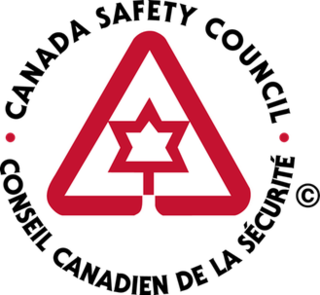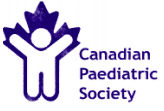Health Canada is the department of the Government of Canada responsible for national health policy. The department itself is also responsible for numerous federal health-related agencies, including the Canadian Food Inspection Agency (CFIA) and the Public Health Agency of Canada (PHAC), among others. These organizations help to ensure compliance with federal law in a variety of healthcare, agricultural, and pharmaceutical activities. This responsibility also involves extensive collaboration with various other federal- and provincial-level organizations in order to ensure the safety of food, health, and pharmaceutical products—including the regulation of health research and pharmaceutical manufacturing/testing facilities.

The Hospital for Sick Children (HSC), corporately branded as SickKids, is a major pediatric teaching hospital located on University Avenue in Toronto, Ontario, Canada. Affiliated with the Faculty of Medicine of the University of Toronto, the hospital was ranked the top pediatric hospital in the world by Newsweek in 2021.
University Health Network (UHN) is a public research and teaching hospital network in Toronto, Ontario, Canada. It is affiliated with the University of Toronto, and is the largest health research organization in Canada, ranking first in Canada for total research funding. It was named Canada's top research hospital by Research Infosource from 2015 to 2022. The network includes three acute care hospitals – Toronto General Hospital, Toronto Western Hospital, Princess Margaret Cancer Centre – the Toronto Rehabilitation Institute, and The Michener Institute, a post-secondary institution granting diplomas and certificates in health sciences and leadership. In the 2019-2020 fiscal year, there were over 39,000 acute inpatient stays and close to 121,000 emergency department visits across the three acute care hospitals. Newsweek has consistently named UHN's Toronto General Hospital as among the world's top hospitals, most recently ranking Toronto General as the world's 3rd best hospital in 2024, and first in Canada.

The Canada Safety Council is a national, non-profit, charitable organization dedicated to safety. It works to prevent deaths and injuries by promoting education and awareness across Canada.

A vaccination schedule is a series of vaccinations, including the timing of all doses, which may be either recommended or compulsory, depending on the country of residence. A vaccine is an antigenic preparation used to produce active immunity to a disease, in order to prevent or reduce the effects of infection by any natural or "wild" pathogen. Vaccines go through multiple phases of trials to ensure safety and effectiveness.
The Fraser Health Authority (FHA) is one of five regional public health authorities in British Columbia. It is governed by the provincial Health Authorities Act.

Combined hepatitis A and B vaccine, is used to provide protection against hepatitis A and hepatitis B. It is given by injection into muscle.
A vaccination policy is a health policy adopted in order to prevent the spread of infectious disease. These policies are generally put into place by state or local governments, but may also be set by private facilities, such as workplaces or schools. Many policies have been developed and implemented since vaccines were first made widely available.
The Meadow Lake Tribal Council (MLTC) is a tribal council representing nine First Nation band governments in the province of Saskatchewan. The council is based in Meadow Lake, Saskatchewan.
A vaccine-preventable disease is an infectious disease for which an effective preventive vaccine exists. If a person acquires a vaccine-preventable disease and dies from it, the death is considered a vaccine-preventable death.

The Canadian Public Health Association (CPHA) is a national non-profit organization dedicated to public health.

The BC Centre for Disease Control is the public health arm for British Columbia's Provincial Health Services Authority.

Theresa Tam is a Canadian physician and public servant who currently serves as the chief public health officer of Canada, who is the second-in-command of the Public Health Agency of Canada (PHAC). Tam initially took the role as acting CPHO following the retirement of her predecessor, Gregory Taylor, on 16 December 2016. She was formally appointed on 26 June 2017.
Sir David Michael Baldock Hall is a British paediatrician. Hall is most notable for publishing a paper with Dr Gillian Baird, on the role of primary care in identifying developmental problems in children that later resulted in the series of books being published called Health for all children that led in turn to one of the first attempts to apply an objective evidence based approach to medical practice for children. Hall is emeritus professor of community paediatrics at the Institute of General Practice and Primary Care, University of Sheffield.
Allison Joan McGeer is a Canadian infectious disease specialist in the Sinai Health System, and a professor in the Department of Laboratory Medicine and Pathobiology at the University of Toronto. She also appointed at the Dalla Lana School of Public Health and a Senior Clinician Scientist at the Lunenfeld-Tanenbaum Research Institute, and is a partner of the National Collaborating Centre for Infectious Diseases. McGeer has led investigations into the severe acute respiratory syndrome outbreak in Toronto and worked alongside Donald Low. During the COVID-19 pandemic, McGeer has studied how SARS-CoV-2 survives in the air and has served on several provincial committees advising aspects of the Government of Ontario's pandemic response.
ScienceUpFirst is a Canadian initiative launched to counter misinformation online, especially about COVID-19. Launched January 25, 2021, it brings together independent scientists, health care providers and science communicators.
The National Advisory Committee on Immunization is an advisory body that provides the Government of Canada with medical and scientific advice relating to human immunization.
Dr. Shelley Deeks, MD, MHSc, FRCPC, FFAFPM, is a Canadian public health expert who is the chair of the National Advisory Committee on Immunization. Her advertised "specialities include communicable disease control, outbreak investigations, vaccine safety, epidemiology and program evaluation." She is a fellow of the Royal College of Physicians of Canada and the Australian Faculty of Public Health Medicine. Deeks was the executive lead in Ontario's COVID-19 pandemic response in 2020 in her role at Public Health Ontario.

Caroline Quach-Thanh is a Canadian pediatric microbiologist, epidemiologist and infectious diseases specialist. She is a professor in the Université de Montréal Faculty of Medicine and Medical Lead in the Infection Prevention and Control Unit at CHU Sainte-Justine. She served as the Chair of the National Advisory Committee on Immunization (NACI) before and during the COVID-19 pandemic, and oversaw the approval process of COVID-19 vaccines in Canada.

19 to Zero is a not-for-profit behavioural sciences initiative based in Calgary, Alberta, Canada. Hosted at the University of Calgary, the public–private partnership is made up of around 500 members including public health specialists, academics, behavioural psychologists, marketers and multimedia creators. Its purpose is to increase confidence in vaccines for COVID-19 and other diseases by tackling vaccine hesitancy. The group publishes materials on its website and through partner organizations, including videos, billboards, presentations, brochures and in-person events.









